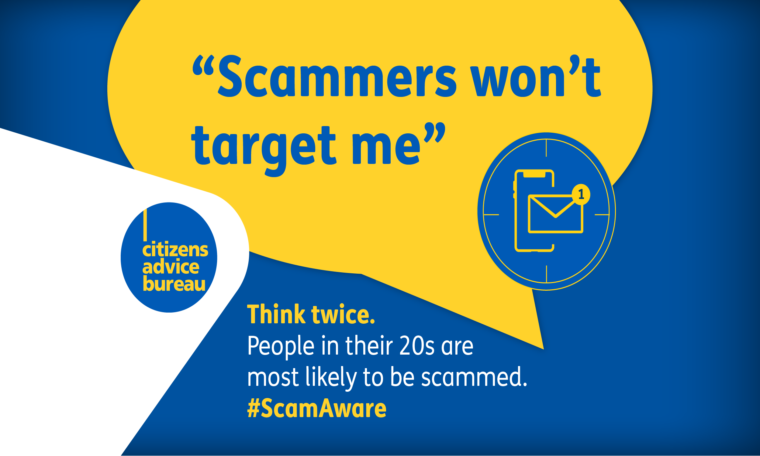
We’re supporting Scams Awareness Campaign 2021 to raise consumer awareness and help equip people with the knowledge they need to recognise scams.
As a member of the Consumer Protection Partnership (CPP) which includes Citizens Advice, National Trading Standards and the Competition and Markets Authority, we’re committed to working alongside other organisations to encourage people to report scams, share their experiences and look out for others.
It’s more important than ever that people are aware of scams. New research by Citizens Advice found more than two thirds of British adults (36 million) have been targeted by a scam since January this year.
While over 55s are most likely to be targeted, those 34 and under are almost five times more likely to fall victim to a scam than their older counterparts.
So, what role does the ASA play in combatting scams, especially online?
It’s vital for consumers to remember that while the overwhelming majority of ads responsibly inform and entertain their audience, some are published with criminal intent.
That’s why, in June last year, we launched a UK Scam Ad Alert system in partnership with major digital advertising and social media platforms, including Facebook and Google, to help tackle scam ads.
Our system, which by March this year had helped tackle over 100 scam ads since its launch, aims to complement and enhance the work already being done by digital advertising and social media platforms and other regulatory bodies.
However, one organisation can’t protect the public from scam ads. It requires a joined-up approach. That’s why a multi-stakeholder response involving law-enforcement bodies, government partners, statutory regulators, platforms and all involved in the online ad industry, as well as national advertising regulatory bodies such as the ASA is critical to combatting them.
A good example of initiatives to combat scams is Friends Against Scams, a National Trading Standards initiative which aims to prevent members of the public from becoming victims of scams by encouraging people to take part in a free online awareness course.
We want to make sure consumers know who to go to if they are concerned about a potential scam. Here is a list of who you can contact:
- Action Fraud is the UK’s national reporting centre for fraud and cybercrime. You should report fraud if you have been scammed, defrauded or experienced cybercrime. You can report scams to Action Fraud on 0300 123 2040.
- If you live in Scotland, you should report a scam to Police Scotland by calling 101 or to Advice Direct Scotland on 0808 164 6000 or through their website at www.consumeradvice.scot.
- Since the launch of our Scam Ad Alert system, we have worked with the government’s National Cyber Security Centre (NCSC). They operate the government’s takedown service, which seeks to remove malicious email addresses and websites.
- Citizens Advice (CitA) offers confidential advice online, over the phone, and in person, for free. It has launched advice on coronavirus scams, which the public can access here.
- National Trading Standards delivers national and regional consumer protection enforcement. Its purpose is to protect consumers and safeguard legitimate businesses by tackling organised criminality. You can contact their scams team here.
- The Chartered Trading Standards Institute (CTSI) are proactively warning people about coronavirus scams currently in circulation. For example, fake emails claiming to be from the government are offering a tax rebate to support people. These are entirely fraudulent. Please visit the CTSI website to find out how to report these and similar types of scams.
- The Financial Conduct Authority (FCA) is the regulator for financial services firms and financial markets in the UK. They have a list of unauthorised firms and individuals. If you are not sure about a company, it may be wise to search for them on this list or directly contact the FCA.
- The Competition and Markets Authority (CMA) also protect consumers from unfair trading practices and will take action against businesses that take part in anti-competitive behaviour. They will investigate unfair pricing practices on many in-demand goods, such as soap and toilet roll. You can find out more about how and when is best to contact the CMA here.
You can also read our top tips for combatting scams, especially those looking to exploit people’s health-related fears during the pandemic, here.
More on
-
Keep up to date
Sign up to our rulings, newsletters and emargoed access for Press. Subscribe now.


